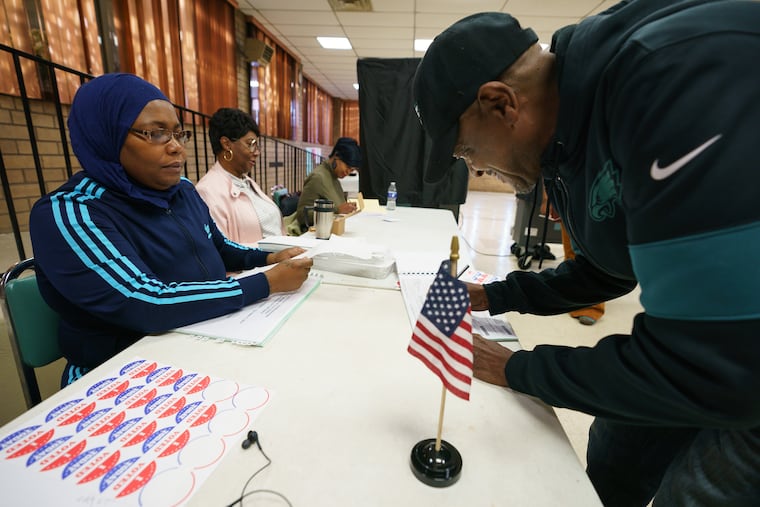7 reforms that would make it easier for everyone to vote in Pennsylvania | Opinion
Mail-in ballots are only the beginning of the voting reforms needed in Pa.

The old saying “vote like your life depends on it” takes on new meaning in a pandemic. Older people and people of color, because of underlying health conditions, are at the highest risk of suffering severe health consequences — and dying — from COVID-19. Indeed, 80% of deaths in the U.S. from the virus have been Americans aged 65 and older. Older people are at the epicenter of this crisis. They are also our country’s “super voters” — the population which votes consistently in every election, model American voters. But our parents, grandparents, and older Pennsylvanians should not have to risk their lives to ensure that their vote will be counted.
We applaud the bipartisan effort of Gov. Tom Wolf and the General Assembly to modernize elections in Pennsylvania through the passage of Act 77, which created voting by mail for all, and the move of the state’s primary election to June 2 in response to the crisis. But we need to do more.
Because voting in person will pose grave risks to people’s health and lives, particularly older people, Americans will turn in unprecedented numbers to voting by mail instead, as they should. Due to COVID-19 and the new processes of Act 77, large numbers of voters will be applying for ballots, many at or near the deadline, and those ballots may not make it back to county election offices by 8 p.m. on Election Day, the current deadline.
In a national health crisis, with unprecedented stay-at-home orders issued by the governor, businesses and schools closed, and public transportation curtailed, voters will have challenges accessing, receiving, and posting the new mail-in ballot. An overwhelmed postal service and backlogs in local county boards of elections will result in delays due to no fault of the voter. Already close to one million requests for mail-in ballot applications have been made. The validity of our votes should not be dependent upon third parties. For these reasons, all ballots postmarked by Election Day should be counted up until seven days after the election. Otherwise, millions of Pennsylvania voters of all ages risk being disenfranchised.
What else can we do to protect our votes during this unprecedented time in our nation’s history?
Mail-in ballots should be sent to all voters with pre-paid postage now. Surely we care as much about our votes as our neighbors in New Jersey, which has done so by order of their governor. Are our votes and those of our elders not worth this effort?
Polling places must be located in a space large enough for social distancing, according to state and federal guidelines. We must provide poll workers and voters with the proper personal protective equipment (PPE) to keep them safe, and to sanitize the polling places to protect voters as well.
Mail-in ballot voters must be notified immediately if there is a problem with their submitted ballot. For instance, if a voter forgets to sign his or her ballot, he or she must have an opportunity to correct it. The Department of State should implement ballot-tracking software and providing funding for the initiative.
» READ MORE: Radicalizing the vote: 10 ideas that just might save democracy | Opinion
Even with the new mail-in ballot option, some populations still face challenges with being able to request a mail-in or absentee ballot. There is a considerable digital divide in Pennsylvania, and that is only magnified by the fact that many public spaces, such as public libraries, remain closed.
In-person voting opportunities must remain in effect in each county, as mail-in and absentee ballots will not be an option for every eligible voter, including individuals with disabilities and those with limited English proficiency. Language assistance must be provided. Voters with disabilities, including many older people in nursing, rehab, and long-term care facilities, must be provided with alternative access to ballots that can be read with screen readers and marked independently.
Voting is the way we participate in our democracy. It is the essence of our democracy. It is a big part of what makes us Americans. Especially now, as we each make sacrifices to protect each other and the most vulnerable among us, we must do all we can to strengthen these true American ideals. Our parents and grandparents deserve nothing less. As do we all.
Karen C. Buck is the executive director and Renee Chenault Fattah is the project director of Pro Bono Action for Community Impact at SeniorLAW Center, a nonprofit organization that seeks justice for older Pennsylvanians through legal services, education, and advocacy.